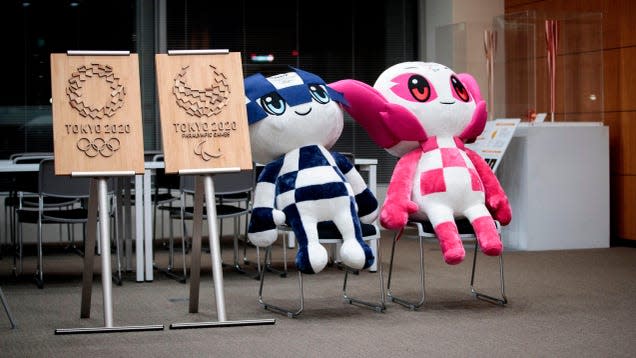The 2020 Tokyo Olympics corruption trail stains Japan’s corporate sector

The Tokyo Olympics just keep getting more expensive by the day. First, it was the pandemic delay. Then, it was the spectator-less Games. And now, infamously, from kickbacks lining the pockets of Olympic organizing committee officials.
Prosecutors have been building a corruption case against Haruyuki Takahashi, a former Tokyo Olympic organizing committee member. A former boss at Japan’s marketing giant Dentsu, Takahashi has been arrested three times since Aug. 18.
Read more
Takahashi, considered a quasi-civil servant in his role during the Games, began serving on the committee in June 2014. Leveraging connections from his four-and-a-half decade career spearheading international sporting events at Dentsu, he secured several sponsorships. In exchange for some of these deals, he allegedly accepted bribes totaling nearly a million dollars.
A snapshot of Haruyuki Takahashi’s bribery allegations
👕 51 million yen ($350,000) from Aoki Holdings, a little-known clothing company that dressed the Japanese Olympic team and sold around 30,000 suits and jackets with the emblem to the general public. Between October 2017 and March 2022, there were 50 “thank you” payments made to Takahashi’s account from Aoki, Tokyo Prosecutor’s office claims.
📚 ¥76 million ($530,000) from major publisher Kadokawa, whose sponsorship win allowed the company to publish programs and other books related to the Tokyo Olympics.
📮 ¥15 million ($104,000) payment from Daiko advertising that Takahashi and another official allegedly received.
🧸 ¥8 million ($56,000) kickback from Tokyo-based Sun Arrow, which supplied soft toy mascots for the sporting event, that Takahashi apparently received via a golfing buddy.
🅿️ Advertising agency ADK and Park24, the largest car park operator in Japan, two other corporates involved in the Tokyo Olympics sponsorship, are also being investigated.
Bribed: Yes or no?
After authorities detained Takahashi, a string of other arrests followed. Some admit to misdeeds, while others say otherwise. The two most prominent cases are:
✅ Hironori Aoki, the founder and former chair of Aoki Holdings, who was arrested alongside his brother and another senior managing executive officer at his firm. Aoki admitted to making bribes.
⛔ Kadokawa Tsuguhiko, the chair of media conglomerate Kadokawa, who was arrested with another executive and employee. Tsuguhiko, who stepped down from the company following his Oct. 4 indictment, denied bribing Takahashi, claiming that any money exchange was part of a consultancy fee.
By the digits
$13 billion: total cost of the Tokyo Olympics
$40 billion: losses Tokyo Olympics avoided by not canceling the game in July 2021, when they finally took place after a year-long delay, but with fewer athletes and no spectators
$22 billion: losses Tokyo Olympics footed for hosting the Games without fans
¥150 million ($1 billion): what Dentsu guaranteed in sponsorships
¥370 million ($2.5 billion): what Dentsu actually pulled in sponsorships
Is Japan corrupt?
Typically, Japan is considered one of the least corrupt countries in the world. In 2021, it ranked the 18th least corrupt country among 180, according to Transparency International. According to the World Justice Project’s Rule of Law index, Japan is the 15th least corrupt country out of 128.
But that doesn’t mean the nation is free of corruption scandals. Most notably, in 1976, then-prime minister Tanaka Kakuei was paid bribes in cash-stuffed cardboard boxes when striking a deal for airplanes built by American firm Lockheed.
Quotable
“The direct exchange of cash for favors from government officials in Japan is extremely rare. However, the web of close relationships between Japanese companies, politicians, government organizations, and universities has been criticized for fostering an inwardly ‘cooperative’—or insular—business climate that is conducive to the awarding of contracts, positions, etc. within a tight circle of local players.” —The US 2021 Investment Climate Statement
Person of Interest: Tsunekazu Takeda
The Tokyo Olympics bribery investigation wasn’t the only one connected to the apparatus supporting the games’ organization—one emerged before the event even began.
In 2019, Japanese Olympic Committee (JOC) president Tsunekazu Takeda got embroiled in a scandal over a $2 million payment made from a Japanese bank account to Singapore-based Black Tidings. He said he signed a regular commercial contract, which had been vetted by many before his signature, and claimed innocence.
In June that year, he stepped down as bribery accusations continued to sully the committee. He’s now been questioned as a witness in Takahashi’s case.
2030 winter Olympics in Sapporo
Japan has to clear out the corruption residue from the Tokyo Games if it wants to host the Winter Olympics in the northern city of Sapporo in 2030.
Last month, JOC president Yasuhiro Yamashita and Sapporo mayor Katsuhiro Akimoto called off a visit to Lausanne, where they were meant to report on the preparations for the potential hosting of the 2030 games.
The cancellation amid several high-level arrests raised eyebrows. Akimoto’s assurances that it was a scheduling hiccup which has “nothing to do with the bribery case” did little to calm nerves.
Support for the Sapporo bid is already waning with over 40% of its 10,000 residents against it. The Tokyo Games, over budget and now overrun by a corruption scandal, don’t make a compelling case for another expensive sporting event. Souring public sentiment can be a game-changer. Local referendums in both Innsbruck in Austria and Calgary in Canada voted “No” to host the 2026 Winter games, shelving their bids.
Related stories
💰 A post-Olympics probe into Team Kenya is confirming fears of corruption
💁🏼 The Nazis fooled the world for 16 days in 1936—and we’re allowing it to happen again

